Consolidate your morphology lessons by ensuring students understand word parts terminology and the meanings of different word parts.
What is Morphology?
Morphology is the study of how words are formed and morphemes are the smallest meaningful parts of words.
Word parts, like roots and bases, prefixes and suffixes have specific meanings. And a word’s definition changes when one of those morphemes changes.
For example:
Forward. Backward.
Date. Predate. Postdate.
Place. Placement. Placed.
An understanding of morphology helps students make connections to other words and their definitions, boosting vocabulary and comprehension skills.
In Morphology Match-Up, students match cards to connect parts of words and various morphology terms with their meanings.
To play, students shuffle the cards and lay them all face up in the centre of the playing area. Every blue card has a matching yellow card. Students take turns finding two cards that match. For a greater challenge, the game can be played in the style of a Memory game with the cards placed faced down. In this case, the player who finds a match keeps the cards and takes another turn. If the cards aren’t a match, they turn them over in their spot and play moves on to the next player. Continue until there are no more cards left in the playing area. The player with the most matches in the end wins!
Tips for Differentiation + Scaffolding
A team of dedicated, experienced educators created this resource to support your English lessons.
Use this morphology match-up to enhance learning in small groups.
If you have a mixture of above and below-level learners, check out these suggestions for keeping students on track with the concepts:
🆘 Support Struggling Students
Help students who need assistance understanding the concepts by limiting the cards in play. Exclude the terms and their matching meaning cards or reduce the number of word part cards and their meanings.
Additionally, provide access to previous assignments, posters and anchor charts for students to recall past lessons.
➕ Challenge Fast Finishers
Students think of another word that uses the same prefix or suffix and use it in a sentence – either orally or written, depending on students’ abilities.
🧠 Morphology Brain Bust
Each time students match a word part to its meaning, they make a list of three other words that use the same root word/prefix/suffix.
Easily Prepare This Resource for Your Students
Use the dropdown icon on the Download button to choose between the colour or black and white PDF or Google Slides options of this resource. An answer key is also included with your download.
Print on cardboard for added durability and longevity. Place all pieces in a folder or large envelope for easy access.
This resource was created by Jennifer Hall, a Teach Starter Collaborator.
Don’t stop there! We’ve got more activities and resources that cut down on lesson planning time:
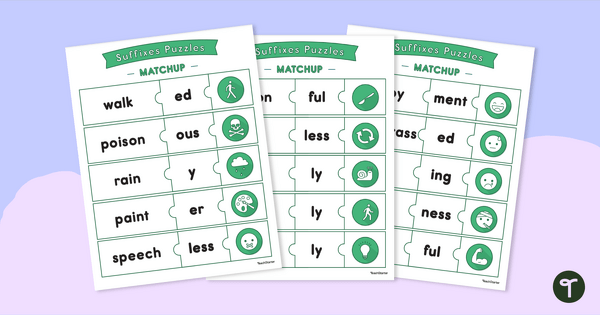 teaching resourceWhat is an Affix? Suffix Puzzle PackPractice building, reading, and understanding the meaning of words with suffixes with a fun set of printable puzzles for kids. |
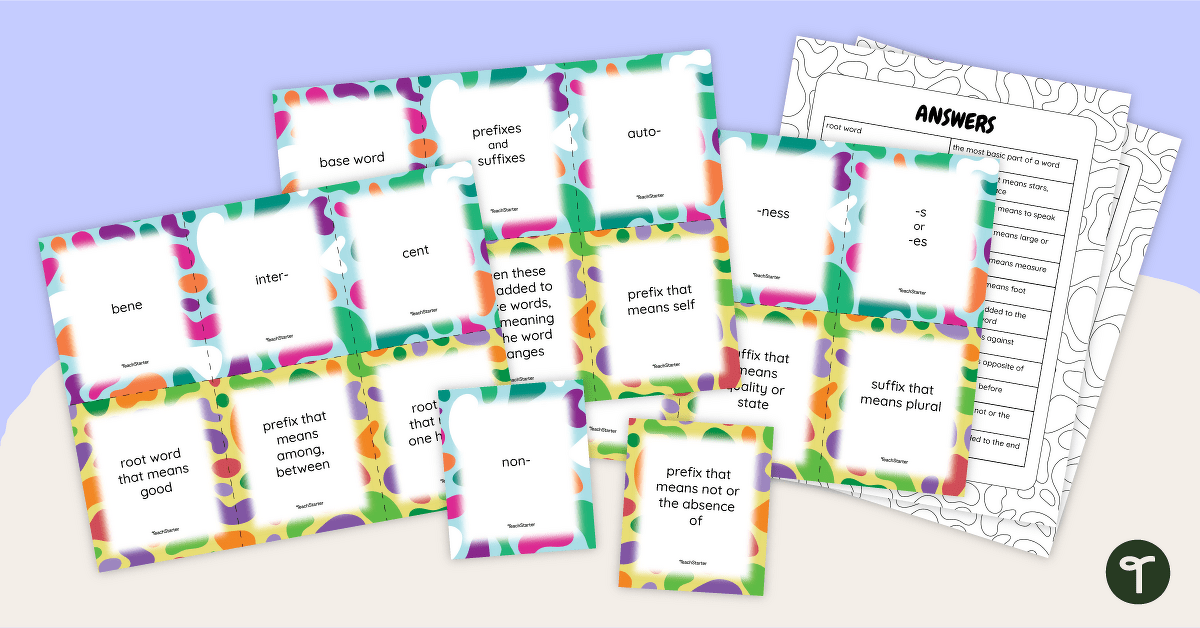

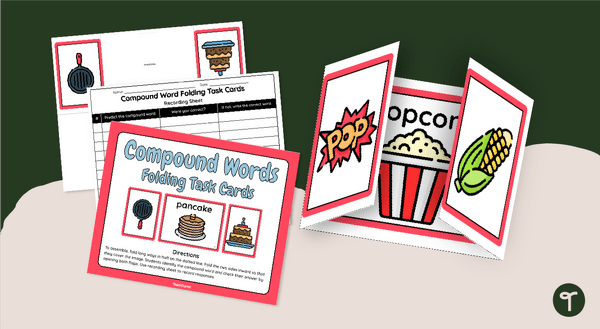
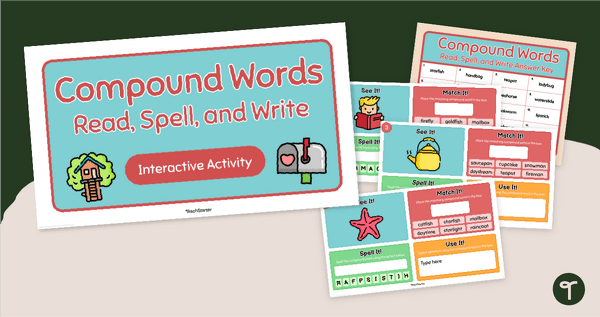
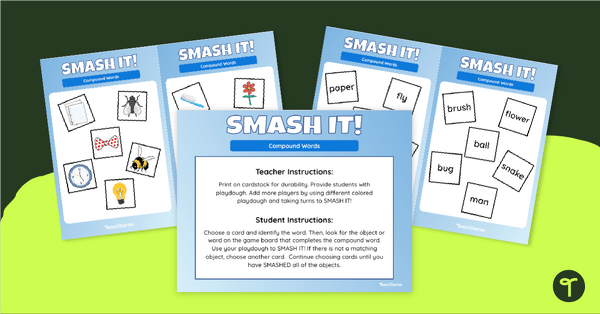
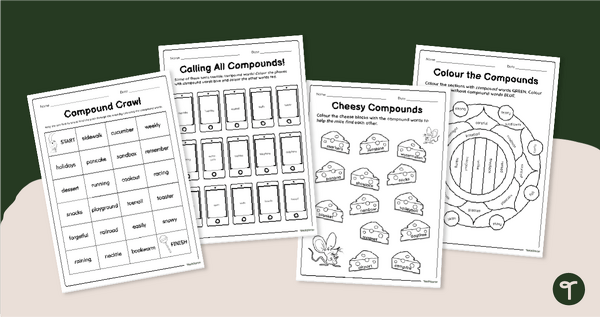
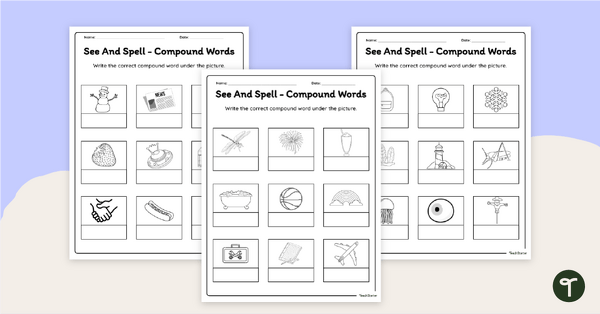
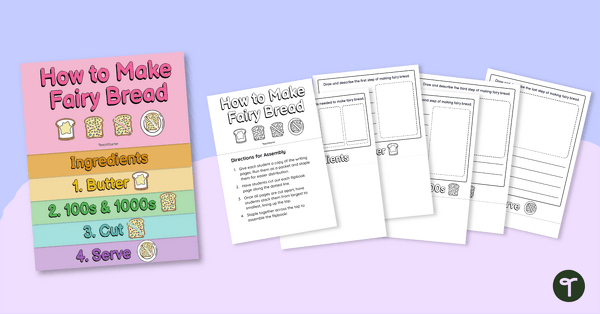
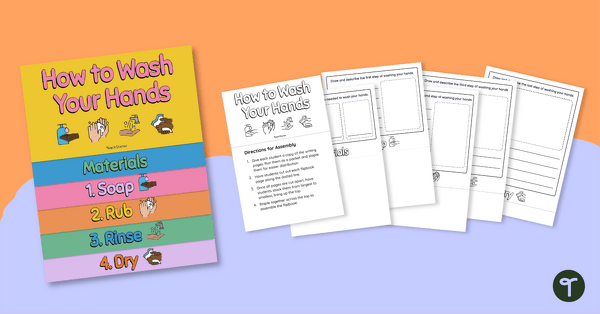
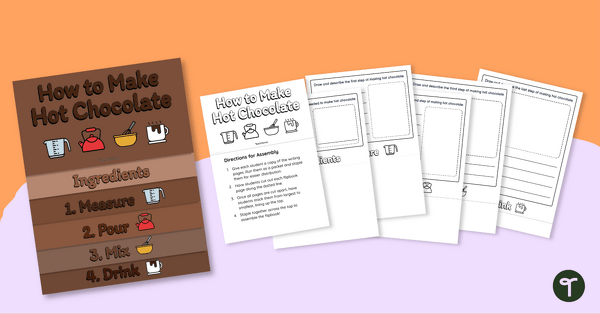
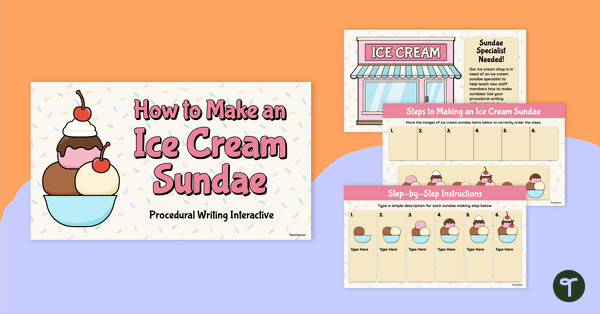
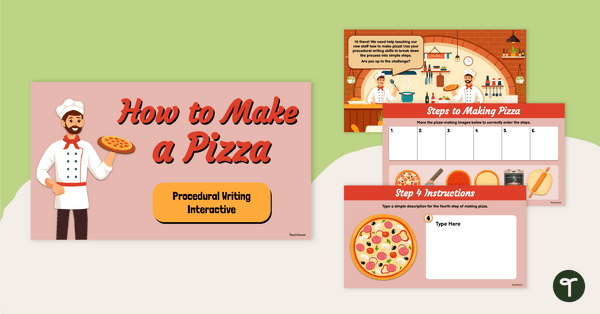
0 Comments
Write a review to help other teachers and parents like yourself. If you'd like to request a change to this resource, or report an error, select the corresponding tab above.